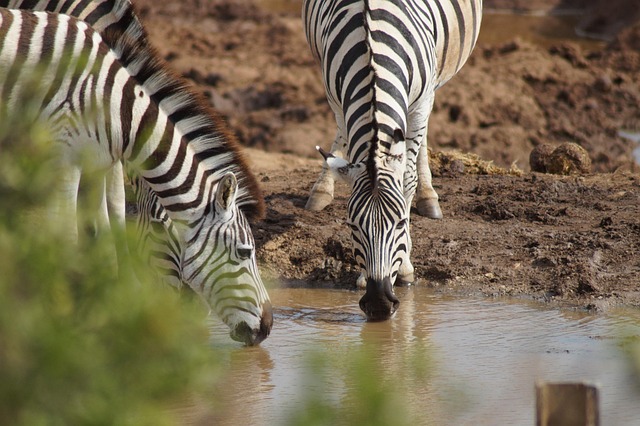Dubai's desert ecosystem, despite its challenges due to extreme heat and water scarcity, is a unique wildland home to specialized wildlife. Desert safari tours offer visitors a glimpse into this fragility while highlighting conservation efforts. Responsible tourism practices, led by organized tour operators, ensure the long-term health of the ecosystem. These tours facilitate rare species tracking, educational programs, and community involvement in conservation. By adopting sustainable measures like eco-friendly vehicles and minimizing impact, Dubai protects its desert biodiversity for future generations, making it a global model for harmonious coexistence between urban development and wildlife preservation.
Dubai’s desert landscape is home to a diverse range of wildlife, making it an essential conservation zone. This article explores the intricate balance of nature in the arid environment, highlighting unique species like the Arabian oryx and fennec fox. We delve into the challenges faced by conservationsists, including extreme weather and human-wildlife conflict. Through responsible desert safari tours, tracking rare species, community education, and sustainable practices, Dubai is making strides in protecting its natural heritage. Discover success stories of endangered animal conservation and glimpse into future prospects for expanding these efforts.
- Desert Ecosystem: The Unique Wildlife of Dubai's Dunes
- Challenges Faced by Conservation Efforts in the Arid Environment
- Initiating Desert Safari Tours: A Responsible Approach
- Tracking and Studying Rare Species in Remote Areas
- Community Involvement: Educating and Empowering Local Folk
- Sustainable Practices for Tour Operators and Visitors
- Success Stories: Conserving Endangered Animals in Dubai's Desert
- Future Prospects: Expanding Conservation Efforts and Research
Desert Ecosystem: The Unique Wildlife of Dubai's Dunes
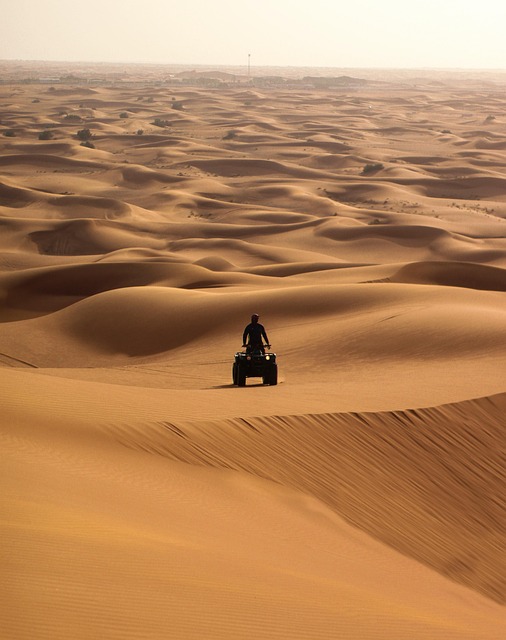
Dubai’s desert ecosystem is a captivating and unique wildland that sets it apart from many other cities globally. The vast dunes, towering sand hills, and rugged terrain are home to an array of specialized wildlife adapted to this harsh environment. From small rodents like the Arabian gerbil and fennec fox to larger predators such as the desert leopard and caracal, these creatures have evolved remarkable survival strategies to thrive in one of the world’s hottest and driest regions.
Desert safari tours Dubai offers provide an opportunity for visitors to witness firsthand the beauty and fragility of this ecosystem. As tourists traverse the sandy landscapes on 4×4 vehicles, they can observe the animals in their natural habitats, learn about conservation efforts, and gain a deeper appreciation for the importance of preserving these unique desert species and their ever-changing homes.
Challenges Faced by Conservation Efforts in the Arid Environment
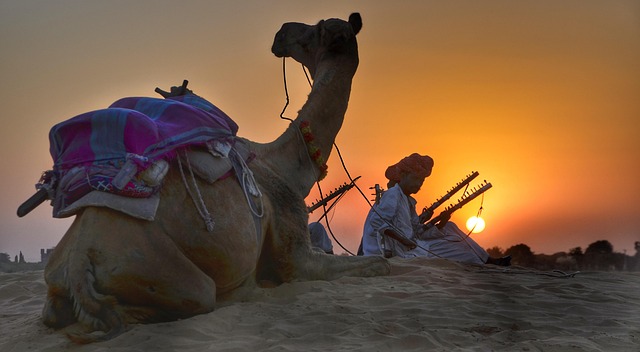
Despite its rich biodiversity, Dubai’s arid environment presents unique challenges for wildlife conservation efforts. The extreme heat and scarcity of water make it difficult for many species to thrive, requiring specialized strategies and resources to protect them. Additionally, the popularity of desert safari tours in Dubai has led to increased human activity and habitat disruption in these fragile ecosystems.
Conservationists face the task of balancing tourism demands with the need to preserve natural habitats. Managing visitor impact, implementing sustainable practices for desert safaris, and establishing protected areas are critical steps to ensure the long-term survival of wildlife species in the Dubai desert.
Initiating Desert Safari Tours: A Responsible Approach
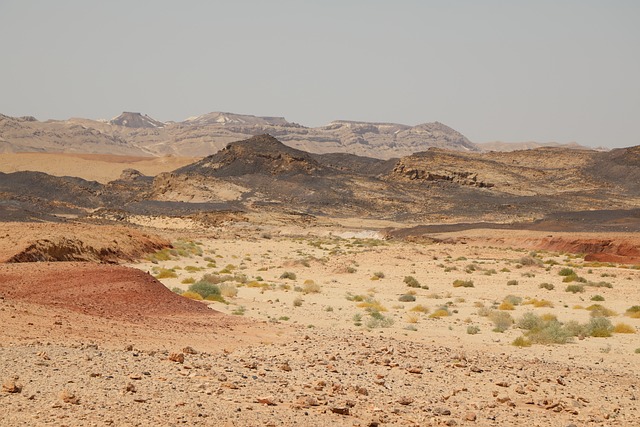
In Dubai, desert safari tours have become a popular attraction for visitors seeking an adventurous experience amidst the city’s unique landscape. However, as the demand grows, it’s essential to approach these excursions responsibly to ensure minimal ecological impact and maximum conservation benefits. Initiating such tours requires careful planning to protect the delicate ecosystem of the Dubai desert, home to various plant and animal species.
Organized tour operators play a vital role in promoting sustainable practices. By implementing responsible tourism strategies, they can educate visitors about conservation efforts, minimize disruption to local habitats, and preserve cultural heritage. This includes using eco-friendly vehicles, adhering to designated routes, and following strict guidelines for waste management and interaction with wildlife. Such measures contribute to the long-term viability of desert ecosystems while offering guests an unforgettable glimpse into Dubai’s natural wonders.
Tracking and Studying Rare Species in Remote Areas
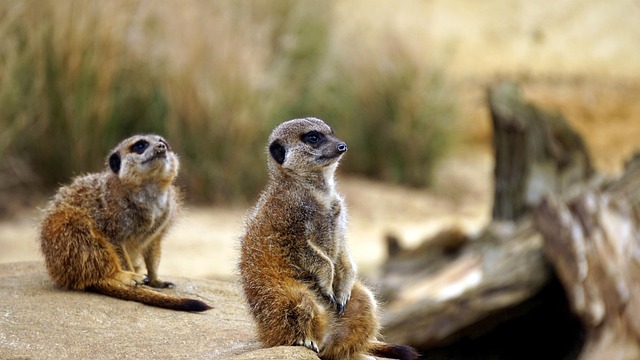
In the vast and remote landscapes of Dubai’s desert, tracking and studying rare species has become a critical aspect of wildlife conservation efforts. Desert safari tours in Dubai play a significant role in facilitating these scientific endeavors by providing unique access to hard-to-reach areas. These tours often employ experienced guides who are intimately familiar with the local terrain, enabling them to locate and observe endangered animals like the Arabian oryx and gazelles. With their help, researchers can gather valuable data on species’ habits, migration patterns, and populations, which is crucial for developing effective conservation strategies.
Through these expeditions, scientists gain a deeper understanding of the ecological challenges faced by desert wildlife, including climate change impacts and habitat destruction. By participating in and supporting desert safari tours Dubai, visitors contribute to this research while immersing themselves in the region’s rich biodiversity. This collaborative approach not only advances conservation science but also fosters public awareness about the delicate balance of life thriving amidst Dubai’s arid landscapes.
Community Involvement: Educating and Empowering Local Folk
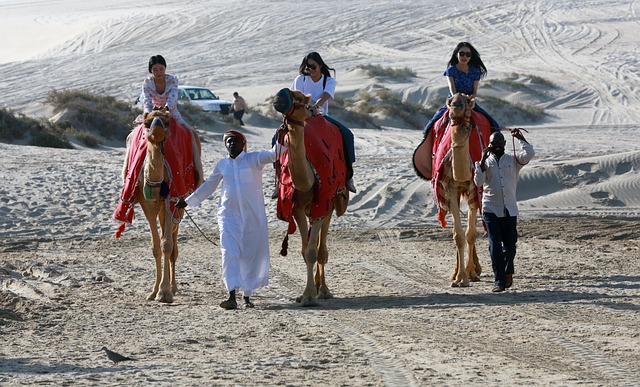
In the pursuit of effective wildlife conservation in Dubai’s desert ecosystem, community involvement plays a pivotal role. Desert safari tours Dubai have become more than just recreational activities; they serve as platforms to educate and empower local folk about the delicate balance of their natural surroundings. By engaging with communities, conservation efforts can gain significant ground, fostering an appreciation for the region’s unique wildlife and habitats.
Through interactive workshops and educational programs, locals learn about the importance of preserving endangered species and sustainable land use practices. Empowered with knowledge, these community members become guardians of the desert, actively participating in monitoring and protective activities. This collaborative approach not only strengthens conservation initiatives but also ensures that traditional ways of life are harmonized with the preservation of Dubai’s remarkable desert biodiversity.
Sustainable Practices for Tour Operators and Visitors
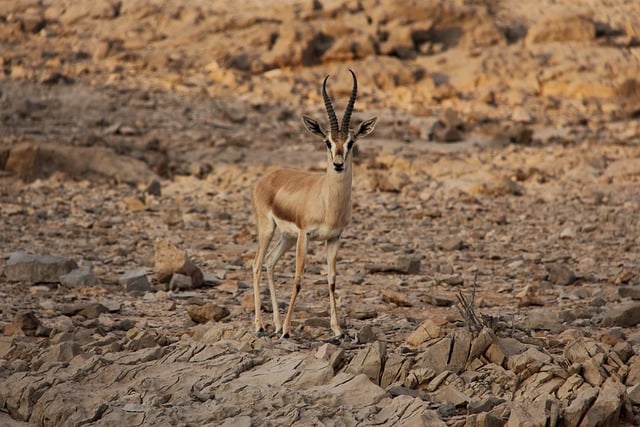
In Dubai, as with any wildlife-rich region, sustainable practices are essential for both desert safari tours Dubai and visitor experiences. Tour operators play a crucial role in ensuring that interactions with the local ecosystem are minimal yet meaningful. This involves adhering to strict guidelines regarding vehicle use, keeping distances from animals, and avoiding areas during critical seasons or times when creatures are particularly active or vulnerable. Promoting responsible practices among visitors is also vital; encouraging guests to respect wildlife habitats, dispose of waste properly, and avoid littering helps preserve the desert’s delicate balance.
Additionally, tour operators should invest in eco-friendly equipment, such as solar-powered vehicles and reusable water bottles, and minimize the use of single-use plastics. By prioritizing sustainability, these measures not only protect the Dubai desert’s wildlife but also enhance the overall visitor experience, fostering a deeper appreciation for nature’s wonders while ensuring their longevity.
Success Stories: Conserving Endangered Animals in Dubai's Desert
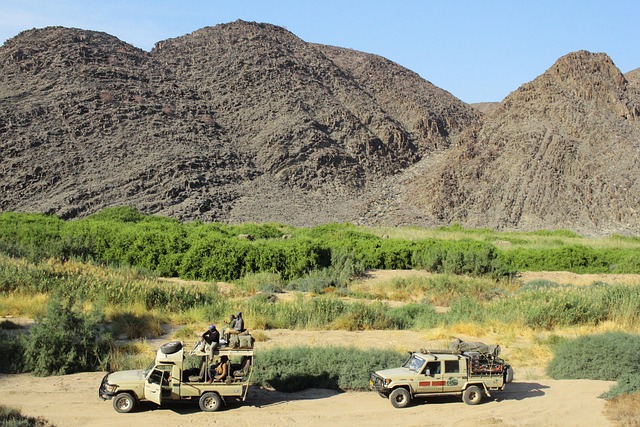
In the heart of Dubai’s arid desert landscape, conservation efforts have led to remarkable success stories, particularly in protecting endangered animal species. One of the most notable achievements is the rehabilitation and release of the Arabian oryx, once a critically endangered species roaming the region. Through dedicated conservation programs, including captive breeding and reintroduction initiatives, Dubai has played a pivotal role in increasing the oryx population, making it a shining example of successful wildlife conservation.
Desert safari tours in Dubai have not only contributed to these efforts by raising awareness among visitors but also by funding various conservation projects. These tours often include educational components that highlight the region’s unique biodiversity and the importance of preserving it. As a result, many tourists become advocates for conservation, supporting initiatives aimed at protecting not just the Arabian oryx but a wide array of desert-dwelling animals and plants, ensuring their survival for future generations to appreciate.
Future Prospects: Expanding Conservation Efforts and Research

As Dubai continues its remarkable growth and development, the city’s commitment to wildlife conservation in its unique desert ecosystem is gaining international recognition. Future prospects for expanding conservation efforts and research look promising, with a focus on enhancing the sustainability of the region’s natural habitats. One key strategy involves engaging local communities and tourists through educational programs and sustainable practices, such as eco-friendly desert safari tours Dubai offers. These initiatives not only promote awareness but also ensure that economic development and ecological preservation go hand in hand.
Research efforts will be directed towards understanding the impact of climate change on the desert ecosystem and developing adaptive strategies to protect vulnerable species. By leveraging technology and collaborating with international research institutions, Dubai aims to become a leader in sustainable conservation practices. The expansion of protected areas and the establishment of research stations will further solidify Dubai’s role as a global model for harmonious coexistence between urban development and wildlife preservation, especially in the context of desert environments.
Dubai’s desert ecosystem, with its unique wildlife, has made significant strides in conservation efforts. By combining responsible tourism through desert safari tours Dubai, community involvement, and sustainable practices, local initiatives have successfully preserved endangered species. As the region continues to innovate, expanding conservation efforts and research will be crucial for maintaining the delicate balance of this vibrant desert landscape, ensuring that future generations can still experience the wonders of Dubai’s wild nature.
